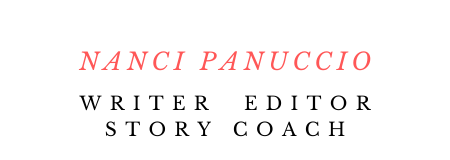Our stories can become so overrun with ideas, they run away from us.
Each idea begets another and another until you’re lost in the vortex. There are stories within stories. Endless possibilities. So many directions the story can go.
And then writing your story, let alone finishing it, feels like an insurmountable task.
So in today’s episode, I’m going to give you 5 questions to explore, so you can reign your story back in with clarity and control.
Download as an MP3 by right-clicking here and choosing “save as.”
Episode at a glance:
[02:21] What was the original impulse for you to write this story?
Think back to the first time this story came to you, that very first glimmer of an idea. What was the initial inspiration? Was it a specific memory? Was it something traumatic that continues to haunt you? Was it something you observed or continue to observe? Was it derived from part of your everyday experience? Maybe it was a person you find fascinating or weird or infuriating. Just locate that moment. What inspired you? What was the original impulse?
[04:48] Why does this story matter to you?
Why do you care? What continues to compel you to write this? Why have you taken it this far? What are you trying to understand about yourself, the people closest to you, and your place in the world through this piece of writing?
What fascinates you or raises an evolving question that’s been tugging at you? Trust what comes up. This will help you zero in on the heart of the story you’re longing to tell.
[04:55] Who is your story about?
Pick one main character. Even if you have multiple points of view, there’s usually one character who gets the most narrative space. Just focus on the character you feel most pulled to write about – the character who will experience the most change by the end of the story.
[06:49] What does your character want?
What does he or she wants to achieve by the end of your story?
The want doesn’t have to be anything grand or epic. It doesn’t need to be something as dramatic as surviving a war, or finding the killer, slaying the Dark Lord, or escaping the authorities. It could be. But even with something that concrete, there’s got to be something internal driving it.
Why does getting it matter to your protagonist? What happens if he or she doesn’t get it? That by the way, is your character’s greatest fear.
[07:54] The desire may not be a life or death matter, but to your character, it does feel like life or death. So you want to think of that desire as wired into their sense of survival.
Your character comes into the story already wanting something. They may not think they stand a chance in hell of getting it. And that’s where the story’s tension lies. Will this person get what they want or not? Who or what is getting in the way?
[09:38] What are your character’s core beliefs?
What do they believe is true about themselves, about key people in their lives and about the world around them?
What do they hold on to that doesn’t serve them vis a vis what they want to achieve by the and of the story? These are faulty beliefs that sabotage your character. It’s what gets in the way of his or her own transformation. Sure, there will be outside forces thwarting them, but the biggest obstacle they’ll face is within.
[12:56] What’s the focal point driving your story?
There’s got to be a single central point propelling your story. So ask yourself: what do you want readers to come away from your story thinking about or feeling? This will help you nail down this specific problem your story will revolve around.
It’s got to be one specific story problem. Often writers give their characters too many competing problems to solve. And that’s where the story loses focus.
[14:05] The point really emerges out of your protagonist’s inner struggle. The external events will trigger that struggle and ultimately make the point. That’s the payoff at the end.
Now have fun with this. Don’t overthink it, just write the first thing that comes into your mind. You know more about your story, then you may realize you have all the answers. So just write a paragraph or two on all of these questions.
Links mentioned in this episode:
Episode 153: How To Link Your Character’s Interior Story To The Plot
Autobiography Of A Face by Lucy Grealy
The Catcher in The Rye by J.D. Salinger
Ordinary People by Judith Guest
Rate, Review, and Follow on Apple Podcasts.
“I love Writer Unleashed!” If that sounds like you, please consider rating and reviewing my show. This helps me support more writers — just like you —to bring the story burning in their imagination onto the page. Click here, scroll to the bottom, tap to rate with five stars, and select “Write a Review.” Then be sure to let me know what you loved most about the episode!
Also, if you haven’t done so already, follow the podcast. It’s chock full of writing tips and inspiration every Tuesday. Follow now!

